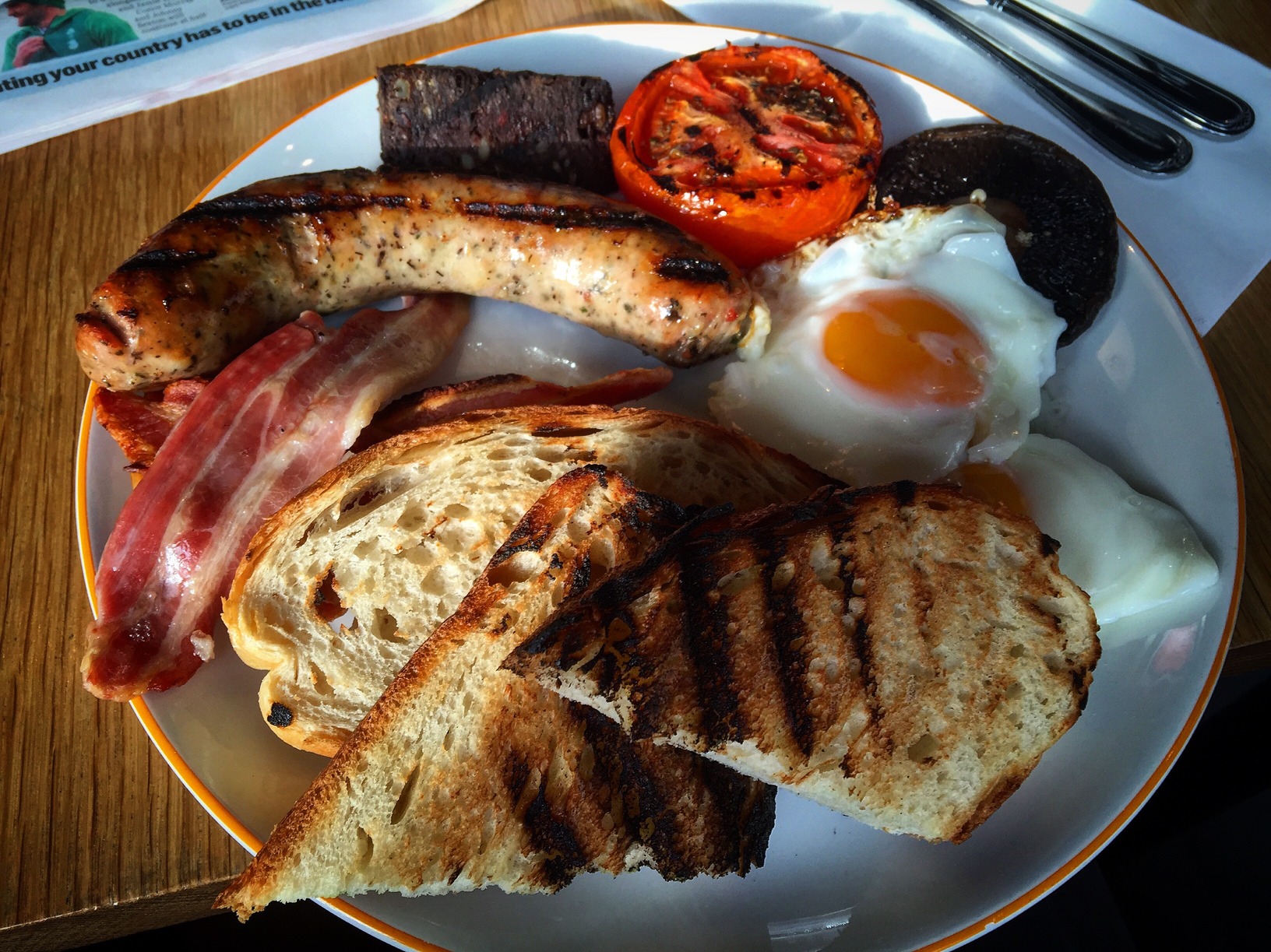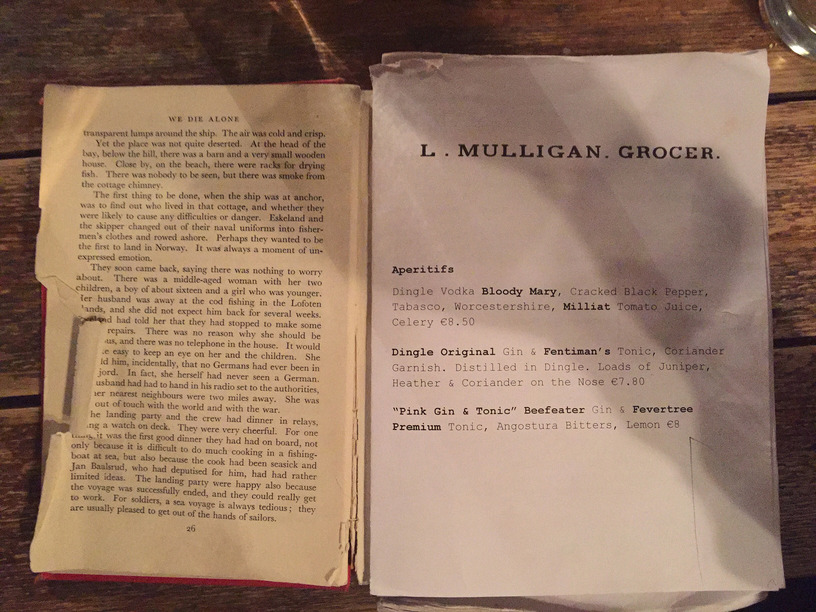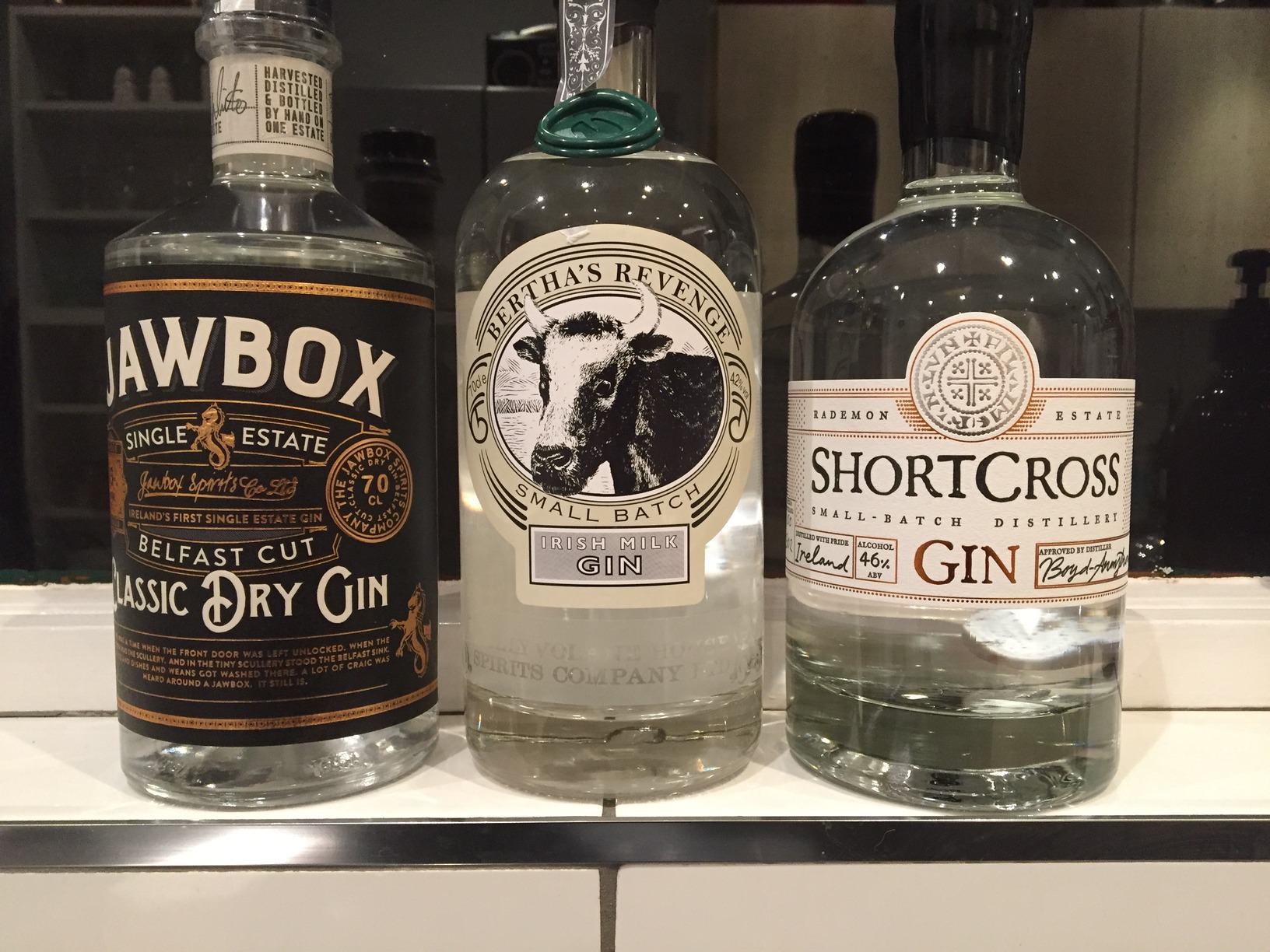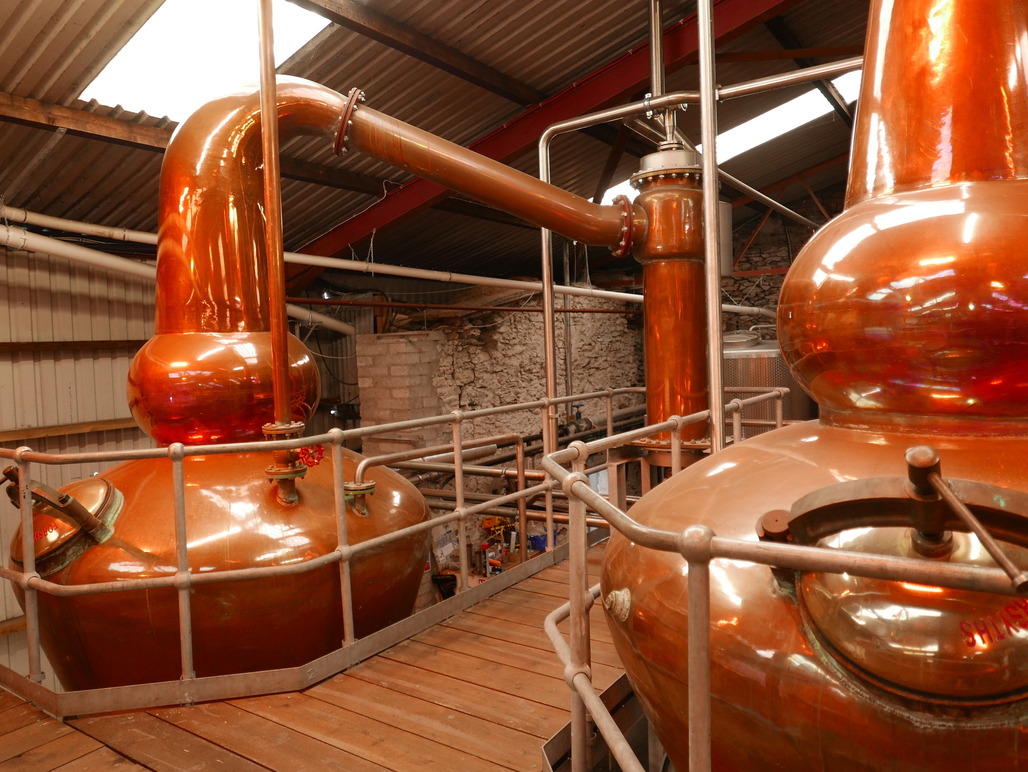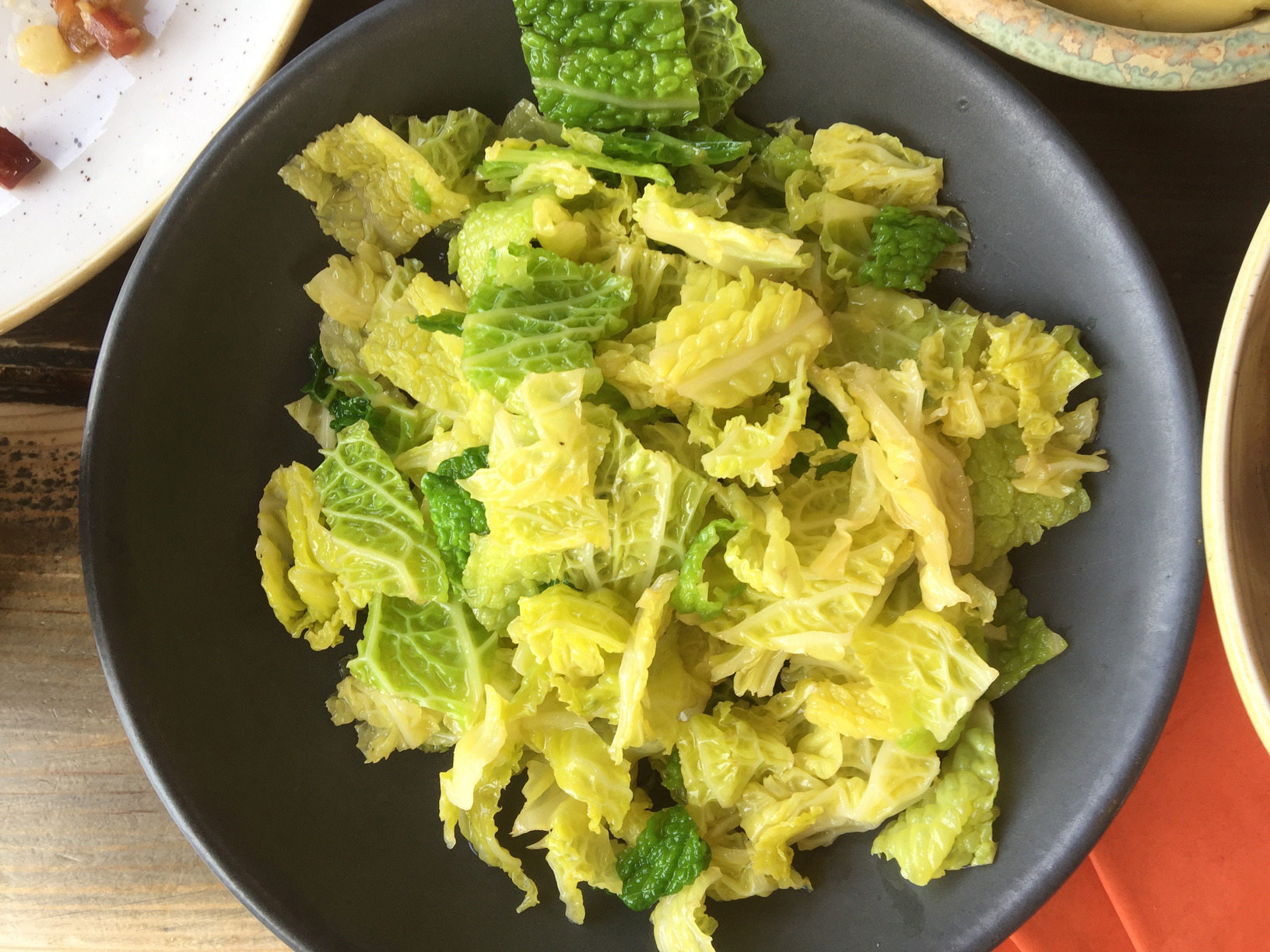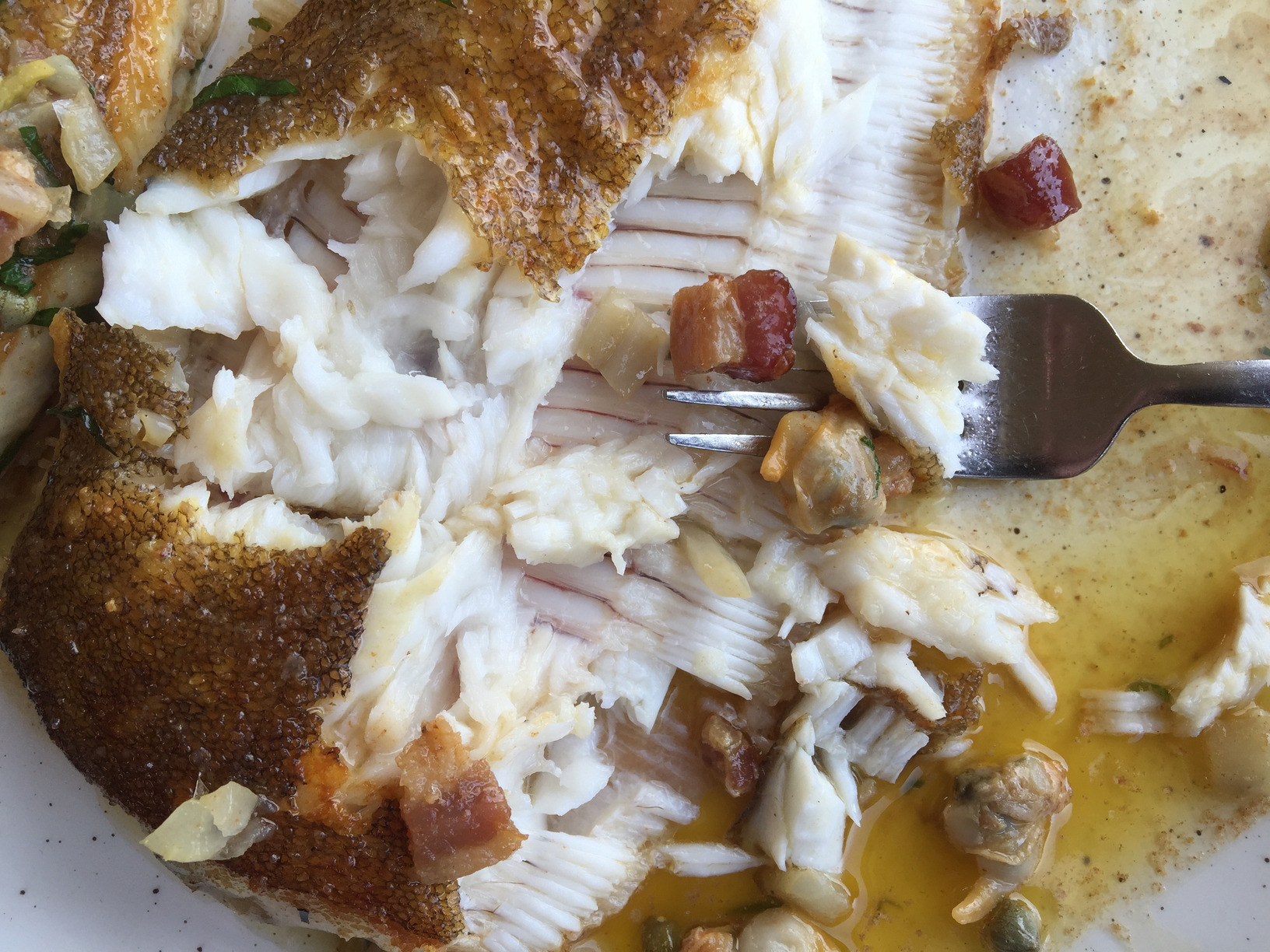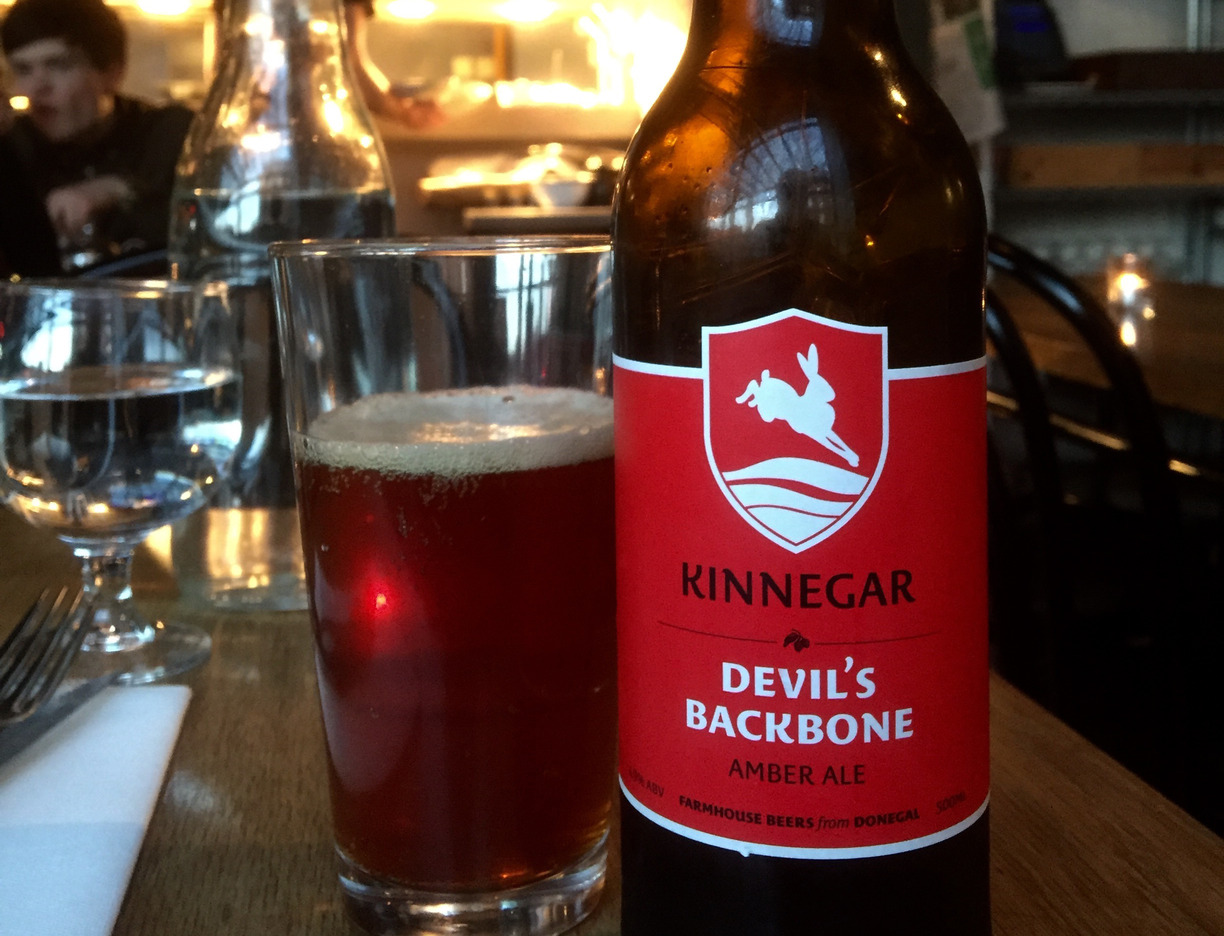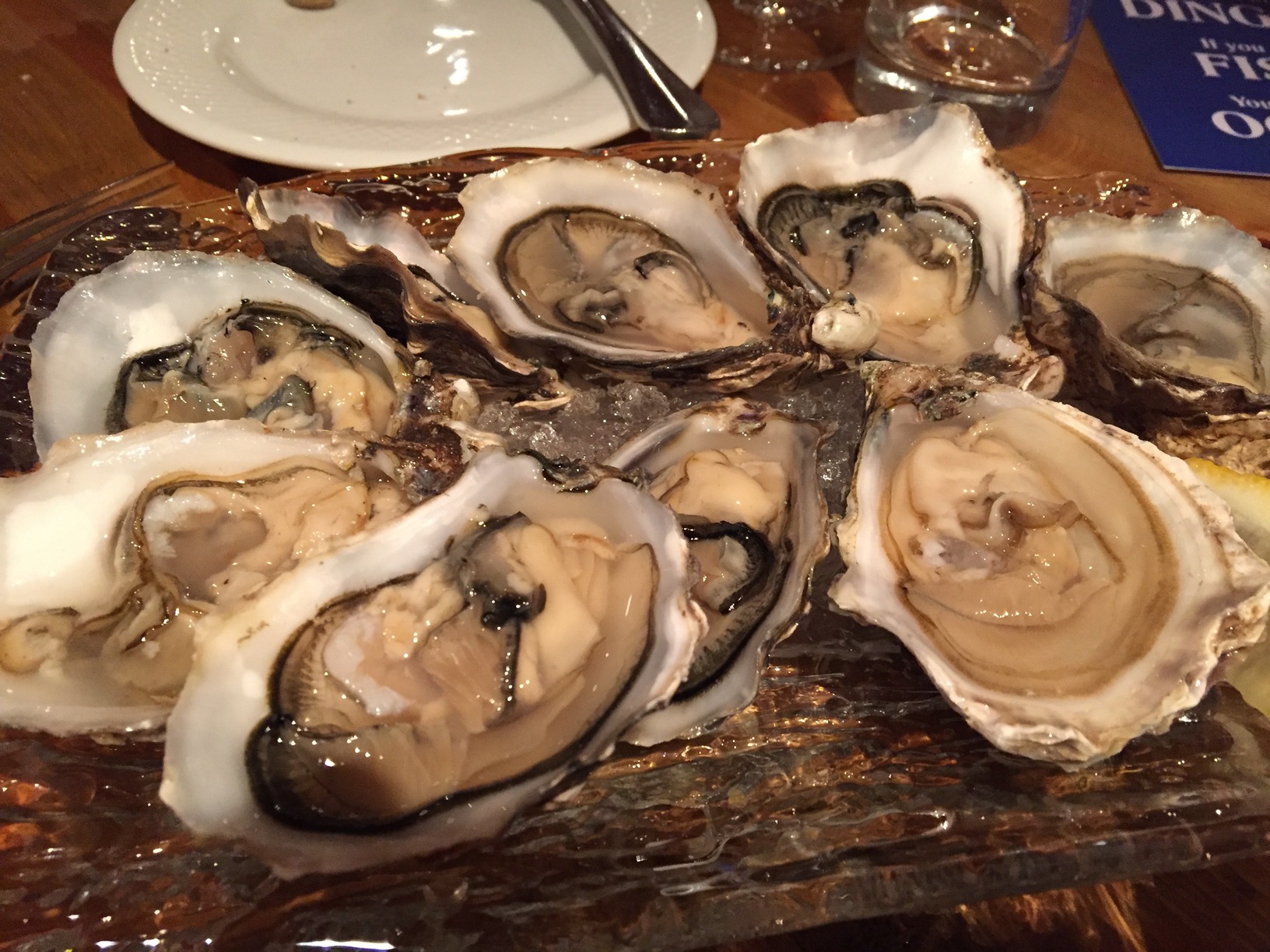The Local newsletter is your free, daily guide to life in Colorado. For locals, by locals.
First Things First: a Full Irish
Off the plane and wandering around Dublin at 6:30 a.m.—Airbnb not ready ’til 3—I stumbled upon a promising-looking restaurant called The Woolen Mills on the banks of the River Liffey. Turns out it’s the sister of the celebrated Winding Stair. Doors opened at 9 a.m. and I was first in. Jet lag, like a hangover, demands protein. The Mills’ Ha’Penny Fry-Up was the best “full Irish” breakfast I had all week—sausages and bacon from a breeder of free-range pigs in Ofally, black pudding from a venerable butcher in Northern Ireland, eggs with yolks the color of tangelo peel, good crunchy toast, and excellent coffee. Thus fortified, I headed into the Dublin morn, wondering what the first acceptable hour might be for a shot of whiskey. In Ireland, of course, that would be pretty much now.

We forget what really fresh fish tastes like
It’s shocking to be reminded how much better seafood is when it eludes the complicated chain of custody that even top-quality companies use to get seafood to, say, the Rockies. In Belfast, at the Mourne Seafood Bar, I had a grilled whole mackerel that was, simply, the best fish I’d tasted in years—served with a chile oil dotted with chunks of local prawn. Up the coast of Northern Ireland, in Portstewart, there’s a casual, prize-winning restaurant called Harry’s Shack, right on a majestic swath of beach, that served a marvelously fresh pan-fried whole megrim—a sole-like flat fish—in a sauce of pancetta, cockles, and capers. It’s the sort of food that reminds you that “fresh and local” isn’t a style or a fetish, it’s an ideal, a gift.
The gastropub idea still has legs
In the Stoneybatter neighborhood of Dublin, M. Mulligan Grocer is as convivial a place I’ve found this year or last. The front room is dominated by a grand old wood bar that’s crowded with whiskeys. The back room is all rough plaster and rough wood tables and friendly service. The food is exactly what you want to tuck into on a chilly spring night: a Scotch egg with a coating of crumbly black pudding, served with candy-apple relish; potted trout with whipped dill and lemon butter, pickled fennel and rye tuiles; pan-fried haddock with mushy peas and house-made tartar sauce. Every dish, including the desserts, is matched with a whiskey or a craft beer (Ireland’s in the middle of a craft beer revival), if you like. M. Mulligan gets the spirits/beer/food/conviviality blend exactly right—all the more so when you can walk in on a Friday night and snag a table.
Only now is the Irish distilling revival taking off
A century ago, U.S. Prohibition and a British ban on Irish imports brought the country’s whiskey industry to its knees, closing all but a couple of distilleries and handing primacy to the Scots. Recently, those big distilleries have produced a number of pot-still specialty lines—you can see them on Colorado store shelves—but only now are small independent distilleries opening in number, both in Northern Ireland and Ireland. A manager at the Dingle Distillery on the southwest Irish coast told me that 15 or more will open in the next few years. There’s a three-year barrel-aging lag from distilling to sales, so in the meantime—as with U.S. start-ups—the focus is on quick-to-market gin. Of three gins I tried in Belfast, one called Jawbox was outstanding: vividly aromatic and spicy without being unbalanced. U.S. shelves should see a lot of new Irish whiskey in the next few years, and it will fall, as Irish whisky does, somewhere between bourbon sweetness and Scotch finesse.
Sweet & Humble
Murphy’s Ice Cream in Dingle (there’s a shop in Dublin, too) makes a sublime version of what I learned is an old Irish treat: brown bread ice cream. Crumbs of the humblest of all Irish staples, traditional brown bread, are caramelized into crunchy nuggets, then folded into vanilla ice cream. If you’ve had Grape Nuts ice cream, it’s like that, but better. The always reliable David Liebowitz reproduced a recipe here.



